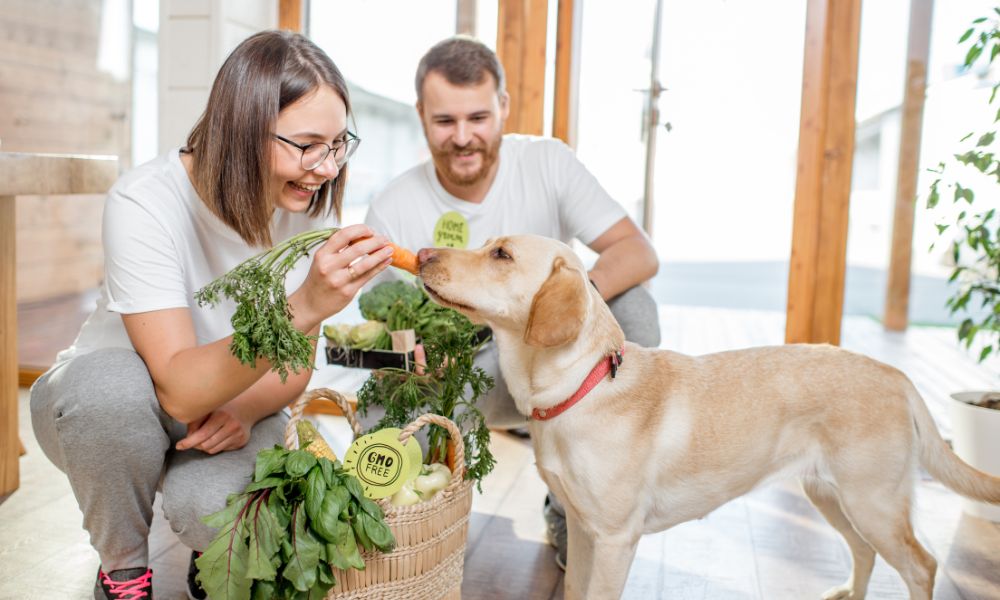
Essential Questions to Ask When Adopting a Dog

Adopting a dog is a significant decision beyond choosing a pet; it's about welcoming a new family member for years to come. This commitment encompasses time, emotional investment, and financial resources. It's crucial to consider the dog's compatibility with your lifestyle, ensuring the chosen pet's temperament aligns with your daily routine and living situation for a harmonious relationship.
The adoption process also involves thoughtful considerations like the benefits of adopting over purchasing, contributing positively to animal welfare. It's important to assess your living space, family lifestyle, and any specific needs, along with preparing for the long-term care of the dog, including veterinary care and training. Setting realistic expectations for the adoption process, which may involve multiple shelter visits, is essential. This journey, filled with unique challenges and joys, ultimately leads to a fulfilling bond with your new canine companion.
Assessing the Dog's Health
One must inquire about current and past medical issues when adopting a dog. Understanding the dog's health history is crucial for providing the best care possible. Ask detailed questions about any medical conditions the dog has had or currently has. Vaccination and deworming history are also critical. Ensure the dog is up-to-date on all necessary vaccinations and has been dewormed. This information is vital for maintaining the dog's health and preventing the spread of diseases.
Another important aspect is the spaying/neutering status. Knowing whether the dog has been spayed or neutered helps understand its long-term health needs and behaviors. Additionally, inquire about any known allergies or special needs the dog may have. This could range from dietary restrictions to environmental sensitivities.
Lastly, ask about the frequency of veterinary check-ups. Regular vet visits are a key part of keeping a dog healthy. Understanding the dog’s history with veterinary care can give insights into its overall health condition.
Related: 5 Things Vets Recommend For Pets
Understanding the Dog's Behavioral History
Understanding a dog's behavioral history is crucial. Start by asking about any known behavioral issues. This includes understanding past incidents or tendencies that might require special attention. Understanding past training and socialization experiences is also vital. It helps gauge how much training and socialization the dog might need.
Assessing compatibility with children and other pets is crucial for a harmonious household. Ask if the dog has lived with or been around children and other animals. Knowing signs of separation anxiety or aggression is vital for preparing to handle these issues if they arise.
Enquiring about habits like barking or chewing is also essential. These behaviors can indicate boredom, anxiety, or other issues that need to be addressed through training or environmental changes.
Ready to Welcome Your New Furry Friend? Visit Paw.com's collection of beds today to find the perfect, cozy bed for your new furry family member. A comfortable bed is just what they need to feel at home with you!
Dog's Background and History
Learning about the dog's origin (stray, surrendered, etc.) provides valuable context about its past. This information can help you understand its behavior and health better. Previous living conditions can influence a dog's behavior and health. For instance, a dog that has lived in a crowded shelter might behave differently than one from a foster home.
Reasons for surrender or rescue can give insights into the dog's potential challenges or special needs. Also, inquire about interactions with previous owners if available. This can shed light on the dog's behavior and temperament.
Understanding a dog's adaptability to new environments is essential, especially if you live in a unique setting or have a busy household.
Related: Bringing Home a Rescue Dog:
Daily Care and Maintenance
Understanding the dog's dietary needs is fundamental. This includes knowing the type of food it eats, any dietary restrictions, and feeding schedules. Exercise requirements and energy levels should be matched with your lifestyle. A high-energy dog might not be suitable for a sedentary lifestyle, and vice versa.
Grooming needs are also important. Some breeds require more grooming than others. If you're adopting a senior dog, ask about special accommodations for senior dogs. They might need different care compared to younger dogs.
Lastly, discuss handling ongoing medical care, if any. Some dogs may have chronic conditions that require regular treatment or medication.
Related: What to Feed Your Dog & What Not to Feed Your
Training and Socialization Needs
Assessing the dog's current level of training helps in understanding how much training the dog will need. Identify areas for behavioral improvement. This can include basic obedience, house training, or more complex behavioral issues.
Understanding how the dog socializes with other dogs and people is key. This affects how it will interact in public spaces and with visitors.
Recommendations for professional training services can be invaluable, especially for dogs with challenging behaviors.
Lastly, get tips for acclimating the dog to a new home. Transitioning to a new environment can be stressful for dogs, and having strategies to ease this process can be beneficial.
Compatibility with Your Lifestyle
Adopting a dog requires carefully considering how well the animal will fit into your daily life. Assessing the dog's fit with your daily routine is crucial. This includes understanding how the dog's feeding, walking, and exercise schedule will align with your own. When considering a pet, think about size and activity level compatibility. Larger or more active breeds might not be suitable for small living spaces or less active lifestyles.
Understanding the dog's temperament and personality is key to ensuring a good match. Some dogs may be more suited for families with children, while others might thrive in a quieter environment. Consider space and environment, such as having a yard or nearby parks for exercise. Finally, reflect on the long-term commitment and life changes of owning a dog. This includes accommodating your pet in life decisions like moving, changing jobs, or growing your family.
Financial Responsibilities of Dog Ownership
According to Forbes, pet owner spend $730/year on their companion. Owning a dog comes with significant financial responsibilities. Budgeting for food, grooming, and care is an ongoing cost that varies depending on the size and breed of the dog. Be aware of potential medical expenses, including regular check-ups and vaccinations. The costs of training and socialization classes can also add up but are crucial for a well-behaved pet.
Planning for emergency medical costs is essential. Unexpected health issues can be expensive, so a financial plan is necessary. Remember regular expenses like flea, tick, and heartworm prevention. These are critical for maintaining your dog's health and well-being.
Asking the right questions is key to finding the ideal dog to join your family. When you're ready to take this exciting step, don't forget to make your home welcoming for your new pet. Explore the Paw.com collection to find a variety of comfortable beds, ensuring your new dog has the perfect spot to rest and relax in their new forever home.
Legal and Documentation Requirements
When adopting a dog, there are legal and documentation requirements to consider. Ensuring legal ownership transfer is a fundamental step in the adoption process. This typically involves signing adoption papers and ensuring the ownership is legally transferred to you. Microchipping and registration information is crucial for the safety and identification of your pet.
It's important to understand local pet laws and regulations. These can include leash laws, licensing requirements, and noise ordinances. Obtaining pet insurance information can be beneficial for covering unexpected medical expenses.
Finally, be clear about the adoption contract and return policy details. This includes understanding the shelter's or rescue's policies if the adoption doesn't work out.
Building a Lasting Relationship
Building a lasting relationship with your new dog starts when they enter your home. Tips for the first few days and weeks are crucial for a smooth transition. This includes introducing your pet to their new environment gradually and calmly. Creating a comfortable and welcoming environment is essential for helping your dog feel at home.
Establishing a routine and boundaries early on is important for both your and your dog's well-being. Consistency in feeding, walking, and sleeping schedules helps your dog feel secure. The importance of patience and consistency cannot be overstated. Adjusting to a new home can be challenging for a dog, who will rely on you for guidance and reassurance.
Finally, focus on building trust and bonding with your new dog. Spend quality time with your pet, engage in play, and provide plenty of affection. This bonding process is crucial for developing a deep and lasting relationship with your new companion.
Embarking on a Rewarding Journey with Your New Companion
Adopting a dog can enrich your life and your new companion. It requires understanding the dog's health, behavior, financial responsibilities, legal requirements, and lifestyle compatibility. Making an informed decision ensures a harmonious relationship and a happy home.
It's a decision that contributes positively to animal welfare and involves a lifelong commitment to love and mutual respect. Future dog owners are encouraged to adopt with responsibility and affection, thoroughly preparing for the rewarding journey ahead with their new family members.
Share this article
written by


